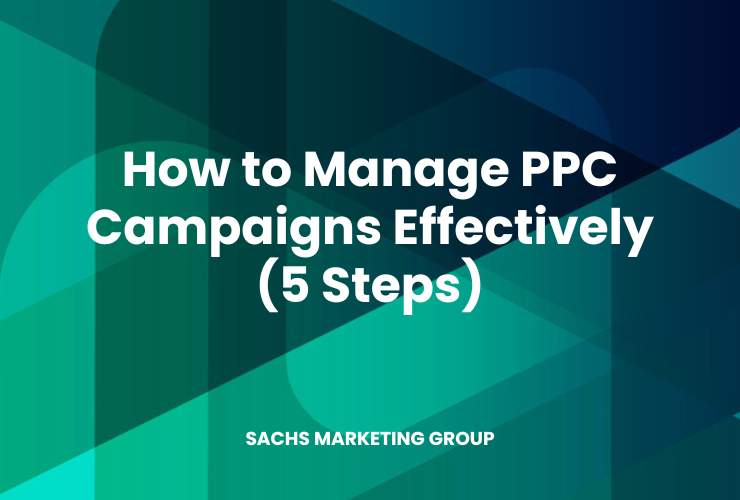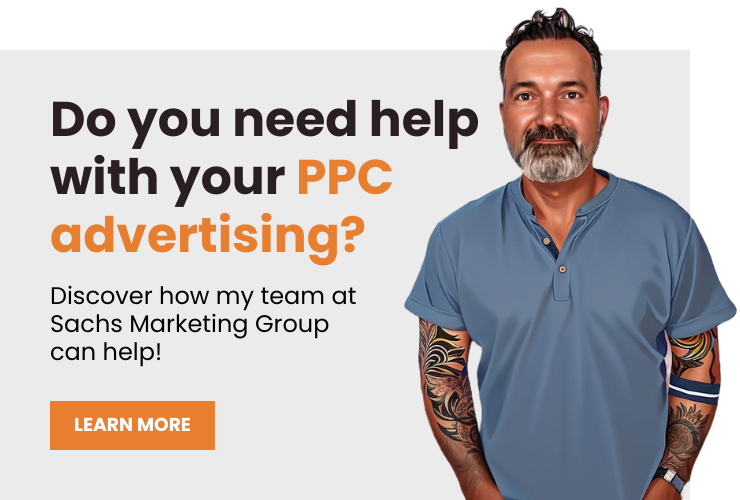You can manage PPC campaigns effectively by taking a strategic approach that includes keyword research, competitive analysis, landing page optimization, ad creation, and constant monitoring and optimization. Utilizing advanced tracking tools, implementing A/B testing, adjusting bids, and regularly updating keyword lists can significantly improve the performance and effectiveness of PPC campaigns.
Every business yearns to improve its online visibility, increase website traffic, and escalate sales, but how to achieve this remains a challenge. Pay-per-click (PPC) campaigns can be the key, offering unparalleled targeting options and immediate results. However, managing them effectively can be a daunting task. This guide will delve into the ins and outs of creating and managing successful PPC campaigns.
Overview
What is a PPC Campaign?
A PPC (Pay-Per-Click) campaign is a digital marketing strategy where advertisers pay a fee each time one of their ads is clicked. It’s a way of buying visits to your site, rather than attempting to “earn” those visits organically, with search engine advertising being one of the most popular forms of PPC.
How to Manage PPC Campaigns Effectively in 5 Steps
Navigating the world of PPC campaigns can be daunting, but with a structured approach, it becomes a manageable task that can drive significant results.
Here are five steps that will help you understand how to manage PPC campaigns effectively …
Step 1: Choose Your PPC Campaign Platform
The first step in managing an effective PPC campaign is to choose the right platform.
The choice of platform is determined by several factors including your business objectives, target audience, budget, and the kind of products or services you offer. Google Ads is the most popular platform due to its extensive reach, as it allows your ads to appear on Google search results, partner websites, and YouTube. Explore these 10 types of Google Ads that help attract customers to get started.
However, other platforms such as Bing Ads, Facebook Ads, or LinkedIn Ads also provide significant opportunities, especially if your audience demographics align with the user base of these platforms.
It’s essential to assess each platform’s potential return on investment by considering the cost-per-click (CPC), conversion rates, and overall user engagement.
Step 2: Identify Your Keywords
The second step in managing a successful PPC campaign is identifying the right keywords (and wrong keywords).
Keywords form the foundation of PPC campaigns as they link what people are searching for to the content you provide. Identifying the right keywords involves understanding the search queries your target audience uses when looking for the products or services you offer. Utilizing keyword research tools such as Google’s Keyword Planner or Ahrefs can provide invaluable insights into search volumes, competition level, and average CPC for various keywords.
Long-tail keywords, which are more specific and less competitive, can also be highly effective in reaching users with clear purchase intent. Once a list of potential keywords is compiled, it should be continually refined and optimized based on campaign performance data.
To learn more about keyword research and setting up your campaign for success, check out our article How to Improve PPC ROI for 10 quick tips.
Step 3: Create Your Landing Pages
The landing page is your ultimate conversion zone. It is the destination your potential customers reach after clicking your ad.
Therefore, it should be meticulously designed and optimized to encourage visitors to take the desired action, whether it’s making a purchase, filling out a form, or signing up for a newsletter.
This involves presenting a clear and compelling value proposition, ensuring the design is clean and distraction-free, and including a prominent call-to-action (CTA). In addition, the content on your landing page should be relevant to the ad copy and the keyword targeted, offering a seamless user experience that aligns with the visitor’s initial search intent.
Step 4: Create Your Ads
Creating your ads involves writing engaging ad copy that stands out in the crowded digital landscape.
Your ads should clearly communicate your unique selling proposition and make a compelling case for why potential customers should choose your business over your competitors. The ad’s headline and description should be tightly aligned with your selected keywords and effectively convey your offer.
Remember, you only have a few seconds to catch a user’s attention, so make sure your ad is persuasive and intriguing. A well-crafted ad that resonates with the targeted audience will not only attract more clicks but also drive more qualified traffic to your landing page.
Step 5: Track Results and Adapt
Monitoring and adapting your PPC campaign is a crucial step that can significantly impact your campaign’s success.
Using tools like Google Analytics or your chosen PPC platform’s built-in analytics, keep an eye on key performance indicators (KPIs) such as click-through rates (CTR), conversion rates, cost per click (CPC), and overall return on investment (ROI). Regularly reviewing these metrics will provide insights into what’s working and what’s not in your campaign, which will help you improve your PPC ROI. This information can be used to make necessary adjustments, including tweaking ad copy, adjusting bids, adding or removing keywords, and refining landing pages.
The ultimate goal is to continuously improve campaign performance and maximize ROI. This step is not a one-time activity but an ongoing process that runs concurrently with your PPC campaign.
Professional PPC Campaign Management
Professional PPC campaign management comes with a plethora of benefits:
- Expertise and Experience: Professionals have the necessary knowledge and experience to create effective PPC campaigns. They understand the nuances of various PPC platforms, are up-to-date with the latest trends and changes in PPC marketing, and know how to leverage these insights for maximum campaign success.
- Time Efficiency: Managing PPC campaigns can be time-consuming. By entrusting your campaign to professionals, you can focus more on your core business operations while the experts handle the complexities of PPC management.
- Advanced Tools and Technologies: Professional PPC management services often have access to advanced tools and technologies that can optimize campaigns more effectively. These resources aid in keyword research, competitor analysis, bid management, and conversion tracking.
- Ongoing Optimization: PPC campaigns require regular monitoring and optimization. A professional doesn’t just set up your campaign and leave it running – they continuously analyze performance data, identify opportunities for improvement, and make necessary adjustments to enhance ROI.
- Detailed Reporting: Professional services provide comprehensive reports that offer insights into campaign performance. These insights can help you understand where your marketing budget is being spent and how effectively it’s driving results.
- Cost-Effective: While there’s a cost associated with hiring a professional PPC management service, the return on investment can be considerable. Professionals know how to manage your budget effectively, avoiding costly mistakes and optimizing your campaign for maximum conversions and minimum cost-per-click.
- Competitive Advantage: With a professionally managed PPC campaign, your business can gain a competitive edge. By leveraging the skills and expertise of PPC professionals, you can outrank competitors, reach more potential customers, and increase your market share.
FAQ
What are the key elements of a PPC campaign?
The key elements of a PPC campaign include the ad groups, keywords, ad text, landing pages, and the bid strategy. Ad groups contain related keywords and ads. The ad text should be compelling, with a clear call to action. Landing pages should be relevant to the ad and optimized for conversions. The bid strategy determines how much you’re willing to pay per click.
What are the strategies for running effective PPC campaigns?
Running effective PPC campaigns involves a range of strategies such as conducting thorough keyword research, writing compelling ad copy, optimizing landing pages for conversions, targeting the right audience, setting smart bidding strategies, and regularly reviewing and adjusting campaigns based on performance data. Additionally, A/B testing different elements of your campaign can provide valuable insights for optimization.
What is one best way to effectively manage PPC advertising for ecommerce businesses?
One of the best ways to manage PPC advertising for ecommerce businesses is to leverage shopping ads. These ads feature product images, prices, and business name, making them highly effective for attracting qualified leads. Additionally, regular optimization based on performance metrics, focusing on high-converting keywords, and using retargeting strategies to reach users who have previously interacted with the website can significantly boost campaign effectiveness.
What does a PPC campaign manager do?
A PPC campaign manager oversees the planning, execution, monitoring, and optimization of pay-per-click campaigns. Their responsibilities include keyword research, ad creation, bid management, budget allocation, and performance analysis. They continuously track campaign metrics, identify areas for improvement, and implement changes to enhance campaign performance. They also provide detailed reports that give insights into the ROI of the campaigns.
Let Us Manage Your PPC Campaigns for You
Are you overwhelmed by PPC campaign management? Sachs Marketing Group can help!
Sachs Marketing Group offers expert PPC advertising management so you can focus on running your business. We don’t just strive to increase ad clicks, we strive to increase qualified leads for your business.
By leveraging precise targeting, compelling ad copies, and optimization techniques, we make every penny count. Picture your business enjoying an influx of traffic and sales, all thanks to your thriving PPC campaigns.
Contact Sachs Marketing Group today to learn how we can help manage your PPC campaigns effectively.
Conclusion
Managing PPC campaigns effectively is an ongoing process that requires strategic planning, continuous monitoring, and regular adaptations. While it may seem complicated, the potential benefits in terms of increased website traffic, qualified leads, and sales make it a worthwhile investment. For best results, consider partnering with a professional PPC management service.
Contact us today to get the conversation started!












